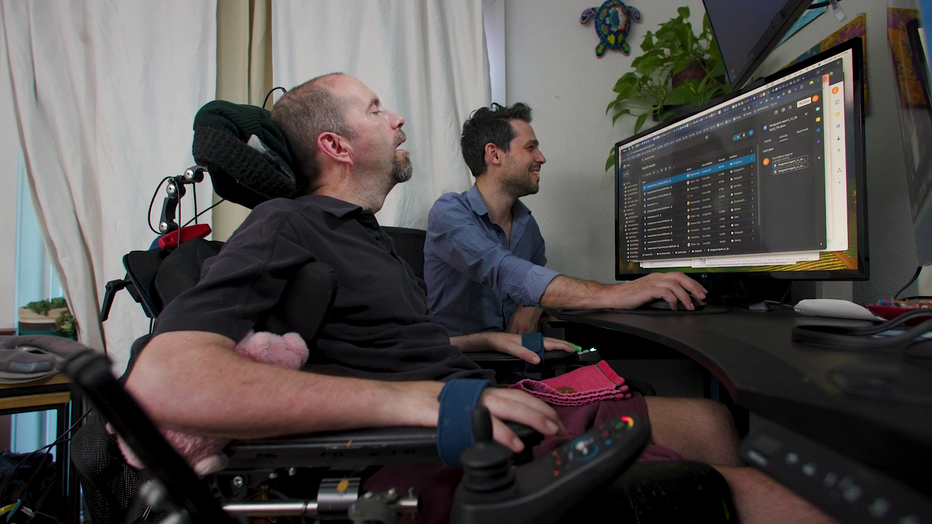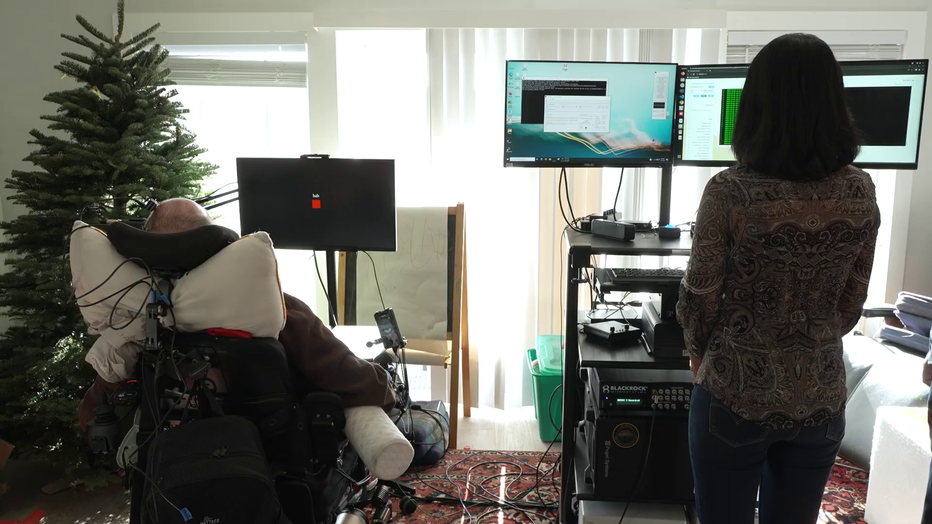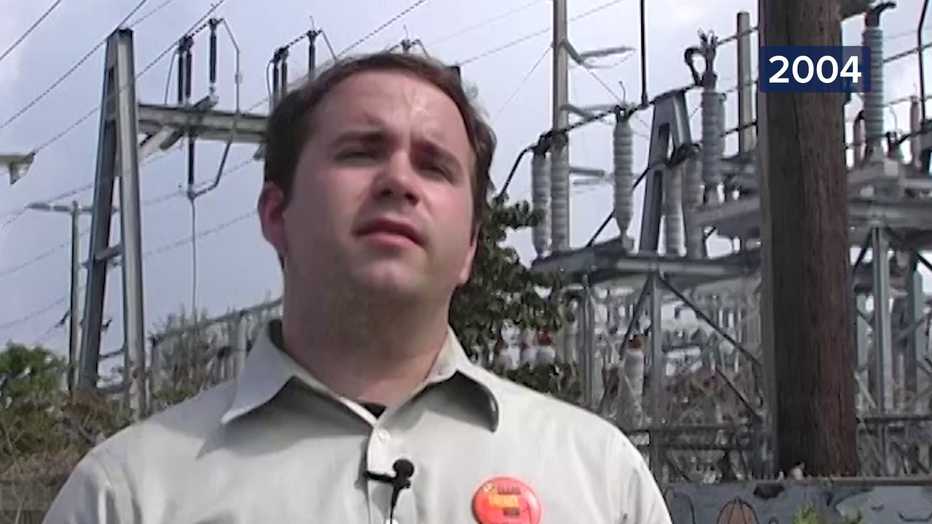Researchers use computer to give Bay Area man with ALS the gift of speech

Researchers use computer to give Bay Area man with ALS the gift of speech
A Bay Area man with ALS can now communicate, all thanks to a computer linked to his brain.
A Bay Area man with ALS can now communicate, all thanks to a computer linked to his brain.
Casey Harrell has ALS and can't speak, but a new Brain-Computer Interface developed by researchers at UC Davis Health has let him communicate again.
It works by reading his brain waves, then transforming them into words that the computer reads out loud.

Casey Harrell works with software to help him communicate again. (courtesy UC Davis Health)
"Not being able to communicate is so frustrating and demoralizing. It is like you are trapped," said Harrell, through the computer.
The speech decoding happens in real time, which allows Harrell to once again have conversations with friends and family, despite not being able to speak.
"So it's not that we're reading people's minds," said Sergey Stavisky, co-director of the UC Davis Neuroprosthetics Lab.
"We're not detecting their inner thought or monologue or their mind's voice. We're really detecting their attempts to move their muscles and to talk."

(courtesy UC Davis Health)
Researchers also used artificial intelligence, to make the computerized voice sound just like Harrell's original one.
They used video of him from when he could still speak, to synthesize his voice.
"By using video recordings that were collected prior to him having ALS, we were able to digitally reconstruct his voice," said Dr. David Brandman, co-director of the UC Davis Neuroprosthetics Lab.

Researchers used video of Harrell from before he developed ALS to help develop an AI snapshot of his voice (courtesy UC Davis Health)
"So now, when he tries to speak, not only do words appear on a screen, but it sounds like him."
Harrell says he looks forward to being able to talk with loved ones once again, and is optimistic about the future use of the technology.
"I hope that we are at a time where everyone who is like me has the same opportunity that I do, to have a device like this that will help them communicate," he said. "Let's all make that happen."
The UC Davis researchers behind the project hope they can continue to develop the technology to help other people with ALS and other motor diseases that keep them from speaking. They're now starting a second round of clinical trials, and enrolling participants.

